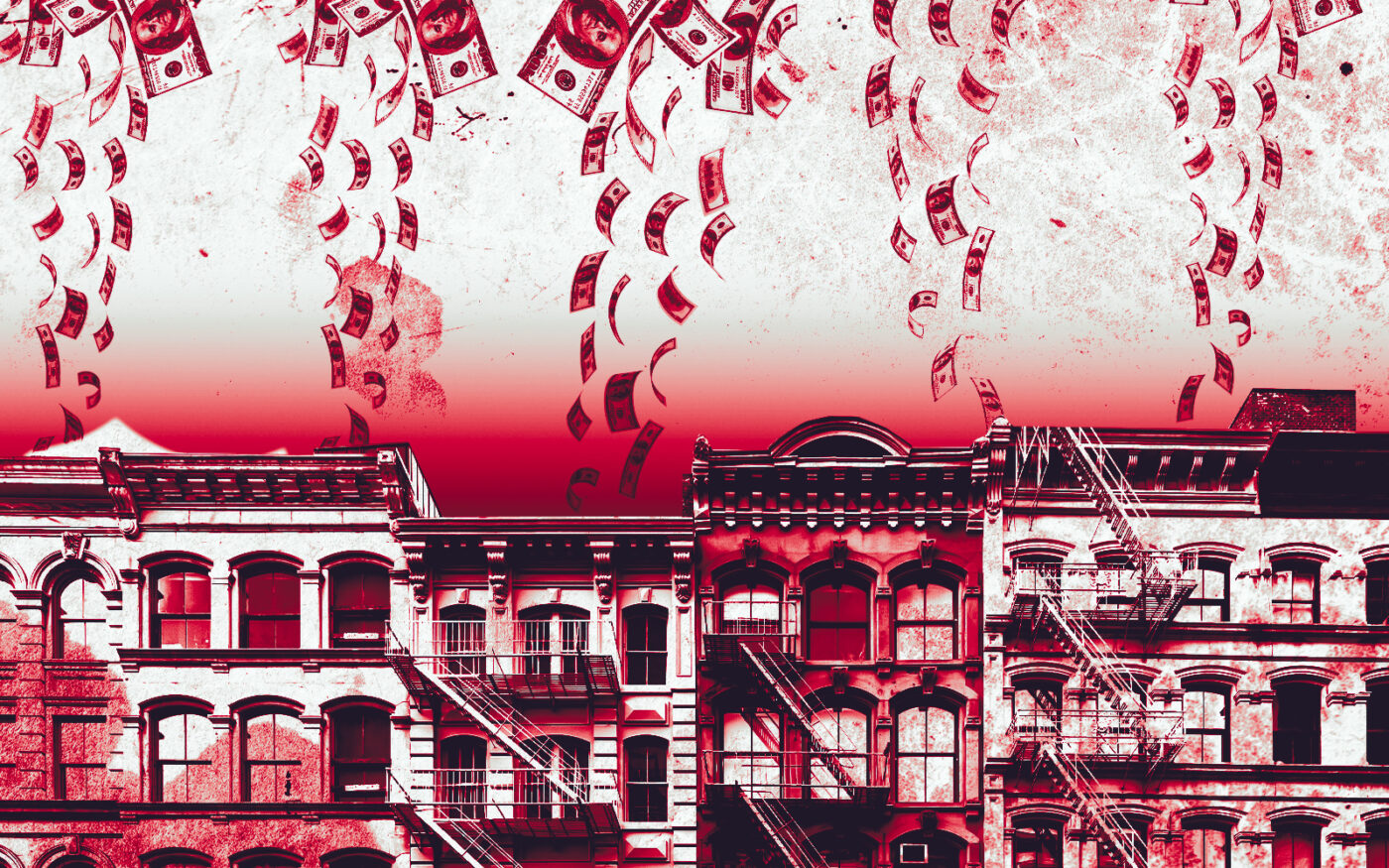The city rent board voted in favor of moderate rent hikes on stabilized apartments at a chaotic meeting Tuesday night that was briefly derailed when tenant advocates and City Council members took over the stage to demand that rents be rolled back.
In a preliminary vote, the Rent Guidelines Board approved a 2 to 5 percent rent increase for one-year leases on stabilized apartments and a 4 to 7 percent hike for two-year leases. Separately, the body approved freezing rents on stabilized hotels.
That’s a far cry from the up to 8 percent increase on one-year leases and 16 percent hike on two-year terms that a board report last month said were needed to keep landlords’ operating income consistent.
The preliminary vote, as its name suggests, is not final. Traditionally, however, the final rent hike tends to land within the range laid out by the preliminary vote.
Last year, for instance, the board signed off on hikes between 2 and 4 percent for one-year leases and 4 to 6 percent for two-year leases. The next month, in its final vote, it approved increases of 3.25 percent on one-year leases and 5 percent on two-year leases.
The board’s landlord representatives pitched their rent increase proposals first on Tuesday night, from a stage at Cooper Union. Tenant advocates and others circled the board as the two landlord members spoke, chanting “rent rollback” and “shame on you.”
The owners’ representatives proposed a hike of 7 to 10 percent on one-year leases and 11 to 14 percent on two-year leases. That proposal failed in a 2 to 7 vote.
The demonstrators fell still and quiet when the tenant representatives followed with their proposal, which ranged from a rent rollback of 1 percent to a 1 percent increase for one-year leases, and a zero to 2 percent increase for two-year leases. That idea was similarly defeated. The middle-ground proposal, put forward by the board chair Nestor Davidson, won with a vote of 5-4.
Landlord advocates argued that the suggested increases do not go far enough.
“With most buildings approaching 100 years old, the city’s rent-stabilized housing stock is on the brink of an insolvency crisis,” said Michael Tobman, director of membership and communications at the Rent Stabilization Association, a landlord group. “The RGB’s own data doesn’t lie: Costs increased dramatically and rent revenue declined.”
Landlords saw their net operating income dive 9.1 percent in 2021 from the previous year, according to one of the board’s latest reports. That’s the largest annual decline since the board started tracking landlords’ income in 1990.
Jay Martin, executive director of the Community Housing Improvement Program, another landlord group, said the ranges approved do “not come close to covering the rising costs in rent-stabilized buildings.”
In a statement after the vote, Mayor Eric Adams singled out the higher end of the range approved for two-year leases, a 7 percent increase, as “clearly beyond what renters can afford and what I feel is appropriate this year.”
“I recognize that property owners face growing challenges maintaining their buildings and accessing financing to make repairs; at the same time, we simply cannot put tenants in a position where they can’t afford to make rent,” he said.
Ahead of Tuesday’s vote, City Council Speaker Adrienne Adams and City Council Housing and Buildings Committee Chair Pierina Sanchez issued a joint statement urging the board against “proposed increases that are counterproductive to New Yorkers persevering beyond our housing challenges.”
The two pointed to a recent report that found that half of the households in the city cannot afford the true cost of living there. Adriene Holder, chief attorney of the civil practice at the Legal Aid Society, condemned the outcome of the preliminary vote.
“Any increase in rents right now will have crushing consequences for tenants already battling a historic affordability crisis, post-pandemic inflation, and a looming recession expected to hit later this year,” she said in a statement.
The board’s final vote is slated for June 21. Approved changes will affect leases effective on or after Oct. 1 at the city’s roughly 900,000 rent-stabilized apartments.
